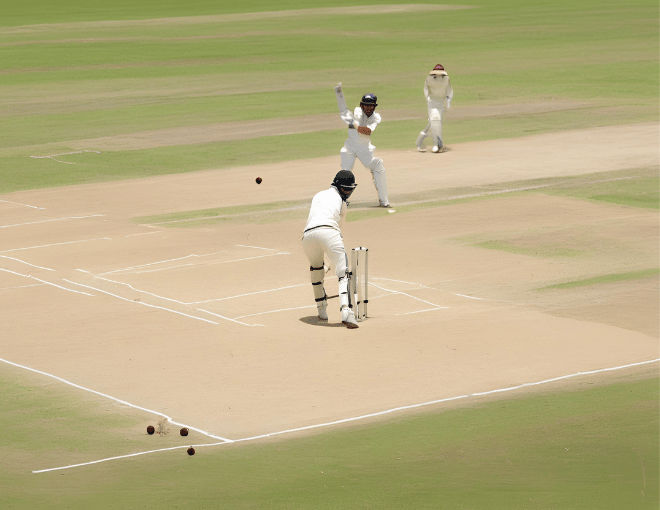Soccer is one of the most watched sports worldwide, and its broadcast has evolved with the rise of digital platforms. Fans now enjoy unmatched access to live soccer games via traditional television and online streaming platforms. Yet, this growth has introduced a complicated legal environment, especially when it comes to merging soccer broadcasts with gambling sites. Various regulations, licensing protocols, and global laws are essential in shaping how these broadcasts are made available and incorporated with betting operations.

The Growing Intersection of Sports Streaming and Gambling
The combination of soccer broadcasting and online gambling has become increasingly popular, especially with live betting and real-time streaming. Online platforms, like soccer broadcasts, have gained traction for offering live streams alongside gambling options, allowing users to place bets while watching games. But this integration comes with its challenges. The legality of broadcasting soccer games varies from one country to another. This is especially true when gambling is involved, as each region has laws regulating sports broadcasting and gambling (source: 축구중계|RoyalTV01).
International Regulations and Licensing
One of the biggest challenges is understanding the different regulations governing sports broadcasting and gambling across countries. Regional or national laws usually govern licensing for sports streaming. In the European Union, for example, broadcasting rights for soccer matches are typically subject to strict regulations to protect national broadcasters and ensure the content is available to the public. This means that a streaming service in one country might not have the right to broadcast a match in another, complicating matters for gambling platforms that wish to integrate these streams into their betting services.
Gambling laws are another major factor. In some countries, such as the United Kingdom and several European nations, betting on live events, including soccer, is highly regulated. Gambling operators must secure licenses to offer such services, ensuring they comply with local laws regarding fairness, transparency, and security. However, the laws surrounding gambling are not uniform worldwide. Countries like the United States and Australia have different approaches to online gambling, with some regions prohibiting certain types of bets or requiring specific licenses for operations.
For gambling platforms that wish to incorporate soccer streaming, the challenge becomes securing broadcast rights and operating within the bounds of these local regulations. Operators must navigate through a web of international rules to avoid legal repercussions, which can be a complex and costly process.
Copyright and Broadcast Rights
Another layer of complexity is the issue of copyright and broadcast rights. Major soccer leagues, like the English Premier League, La Liga, and Serie A, sell broadcasting rights to the highest bidder. These rights can be exclusive, meaning only one company in a particular region or country has the legal permission to broadcast a game. This exclusivity can create difficulties for gambling platforms, as they might not have access to the necessary content to offer their users live streams.
Securing the right to broadcast soccer games is a costly endeavor. For online gambling platforms, this means negotiating with broadcasters or leagues to gain access to the content. Additionally, they must ensure they comply with copyright laws, which can involve paying significant licensing fees and ensuring proper distribution channels.
The Role of Sports Betting Operators
Sports betting operators play a key role in integrating soccer broadcasts with gambling. Many platforms now offer live betting features that allow users to place wagers on ongoing matches. These operators rely heavily on having access to real-time data and broadcasts to provide accurate odds and ensure a seamless betting experience. As such, they must work closely with content providers and broadcasters to secure live streams, and data feeds that align with their betting services.
Gambling platforms need to have a legal framework that allows them to stream games and accept bets simultaneously. However, operators must also be cautious about the risks involved. Broadcasting content without the necessary rights or not adhering to gambling regulations can result in penalties, legal conflicts, and the potential revocation of operating licenses.
The Future of Soccer Broadcasts and Gambling
Looking ahead, the intersection of soccer broadcasts and gambling is likely to continue growing. As technology evolves, new legal streaming and betting integration opportunities will emerge. For example, advancements in mobile apps and OTT (over-the-top) services are making it easier for users to access live streams and place bets simultaneously. This presents a promising future for broadcasters and gambling operators but will require continuous adaptation to comply with changing laws.
Moreover, as the global gambling market expands, more countries will likely begin implementing their own sports betting and broadcasting regulations. Operators and broadcasters must stay informed about these changes to ensure they remain within the law and continue to offer services to their users without legal complications.
READ ALSO: Online Gambling Age Verification Laws
Conclusion
The legal aspects of streaming sports for gambling involve a challenging landscape that demands meticulous attention to international regulations, licensing requirements, and copyright rules. As soccer broadcasts and live betting gain popularity, broadcasters, and gambling platforms must stay within legal limits to prevent expensive legal issues. By ensuring proper regulations and fostering cooperation between sports bodies and gambling operators, the future of combining soccer broadcasts with gambling could be both profitable and legally compliant.




 Thailand’s gambling rules mostly center on conventional gaming events and land-based casinos. The internet world creates a difficulty since certain rules for online lotteries have not been properly defined. This uncertainty generates a grey area where online lottery providers thrive in meeting a demand not satisfied by the official routes. Still, using these sites comes with natural hazards.
Thailand’s gambling rules mostly center on conventional gaming events and land-based casinos. The internet world creates a difficulty since certain rules for online lotteries have not been properly defined. This uncertainty generates a grey area where online lottery providers thrive in meeting a demand not satisfied by the official routes. Still, using these sites comes with natural hazards. Some underage users may try to use false information or IDs to avoid the age verification process. Gamblers and gambling operators alike face heavy fines and perhaps prosecution for breaking these regulations. As a result, neither side is willing to take that chance.
Some underage users may try to use false information or IDs to avoid the age verification process. Gamblers and gambling operators alike face heavy fines and perhaps prosecution for breaking these regulations. As a result, neither side is willing to take that chance.
 Knowing your rights is critical if you are being harassed by debt collectors over gaming debts. How debt collectors can approach and pursue debtors is governed by the Fair Debt Collection Practices Act (FDCPA).
Knowing your rights is critical if you are being harassed by debt collectors over gaming debts. How debt collectors can approach and pursue debtors is governed by the Fair Debt Collection Practices Act (FDCPA).














 Online Baccarat is gaining popularity worldwide, attracting players who appreciate the simplicity and thrill of the game. However, the rise of online platforms has led to varying regulations across countries. Understanding the legal landscape of online Baccarat is essential for players who want to enjoy the game safely and responsibly. Here’s what you should know about navigating these legalities to protect yourself and make informed choices.
Online Baccarat is gaining popularity worldwide, attracting players who appreciate the simplicity and thrill of the game. However, the rise of online platforms has led to varying regulations across countries. Understanding the legal landscape of online Baccarat is essential for players who want to enjoy the game safely and responsibly. Here’s what you should know about navigating these legalities to protect yourself and make informed choices. The online lottery industry is growing rapidly, giving players worldwide access to games from the comfort of their homes. While this convenience is appealing, navigating the legal landscape of online lottery sites can be tricky. Laws vary significantly by region, and some online platforms may not always operate under legal frameworks. Understanding these legal aspects is crucial to ensure a safe and enjoyable gaming experience.
The online lottery industry is growing rapidly, giving players worldwide access to games from the comfort of their homes. While this convenience is appealing, navigating the legal landscape of online lottery sites can be tricky. Laws vary significantly by region, and some online platforms may not always operate under legal frameworks. Understanding these legal aspects is crucial to ensure a safe and enjoyable gaming experience. There is a specific slot machine for every player. Although this may appear daunting, novices shouldn’t be alarmed because these games usually require little talent and depend primarily on chance.
There is a specific slot machine for every player. Although this may appear daunting, novices shouldn’t be alarmed because these games usually require little talent and depend primarily on chance.

 Despite its obscurity, slot gacor was formerly a niche concept. But now, with the rise of online betting and other forms of technological advancement, it has become rather popular. Because it is being driven by advancements that never stop, the future of slot gacor seems bright.
Despite its obscurity, slot gacor was formerly a niche concept. But now, with the rise of online betting and other forms of technological advancement, it has become rather popular. Because it is being driven by advancements that never stop, the future of slot gacor seems bright.




 If you are new to Indonesia and seeking for online gambling sites where you can safely play casino table games and place bets on local and international football matches, your best options for
If you are new to Indonesia and seeking for online gambling sites where you can safely play casino table games and place bets on local and international football matches, your best options for 
